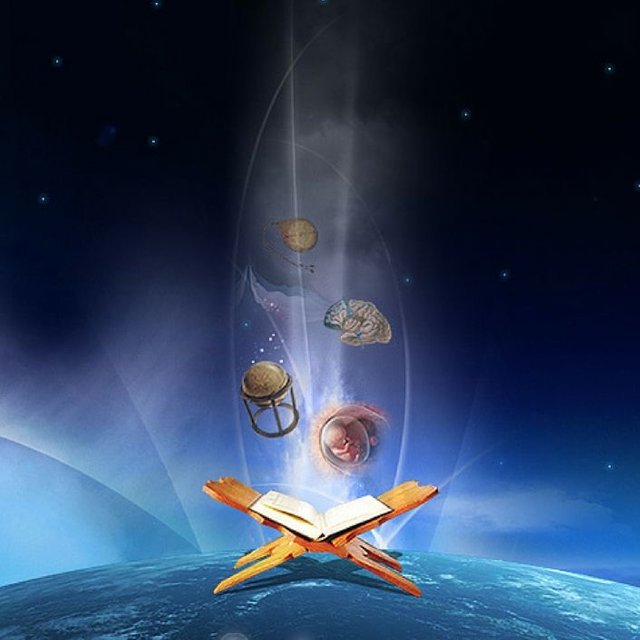How ISLAM encouraged scientific thinking 3 powerful examples
Greetings and Introduction:
Greetings dear Steemit friends!
I hope you all are doing well and enjoying your day with faith, wisdom, and positIvity Today, I want to take you on a shorTyet meaningfuL journeY into the relationshiP between Islam and Science a topic often misunderstooD, but rich with truth and inspiration
 source
source
Islam & Science – A Forgotten Connection
Many people today think that religion and science are at odds But when we look back into Islamic history, we find the opposIte Islam encouraged deep thinking, ObservatioN of natuRe of knowledg In fact, the Golden Age of Islam (8th to 13th century) was a time wheN muslim scholars led the world in scIence, medIcIne, astroNomy, and more
 source
source
Let me sharE with you 3 powerful examples that show hoW Islam inspired scientific thinking.
1. the Quran encOurages observation nd Reflection
the Quran repeatedly invites believers to observe the universe
IndeeD in the creation of the heaVens and the earth and the alternatioN the night and the day are signs for thOse of understAnding
(Surah Aal-e-Imran 3:190)
This verse alone is a call to scientific thought Early Muslim scholars took thisheart and began exploring astronomY mathematicS and the natural sciences not as a challenge to faiThbut as an expression of it
2. Ibn al Haytham The Father of Optics
Ibn al-Haytham (965–1040 CE), a devout Muslim and brilliant scientist, laid the foundation of modern optIc usedscientific method centuries before WesteRn scientists adopte it He wrote
“The duty of thE man who investigates the writings of scientIsTs, if learning the trutH is his goal, is to make himselfenemy of all that reads”
He believeD in questioninG testing, and observing whicH aligns with the Quranic emphasis on “Tadabbur” (deep reflectioN)
3. Al-Razi The Muslim Medical Genius
Al-Razi (865–925 CE), known in the West as Rhazes, was one of the greatest physicians of the IslAmic woRld He maDe major coNtribUtions to medicine and chemIstrY and beliEved that
The search forRtruth is more precious than anything else
His works were used in European universities for centuries His scientific approach was shaped by his understanding of Islam’s respect for knowledge and healing
Conclusion Islam is Not Anti Science
The idea that Islam is against science is a false narrative In fact, Islam ignited the flame of scientific discovery in its early centuries — a fact even Western historians agree on
As Muslims, we should revive this tradition of curiosity, observation, and learning not just to advance in science, but to grow in iman (faith)
What do YOU think?
HaVe you ever hEard of MuslIm scientists like Ibn al-Haytham or Al-Razi before?
Do you belIeve scienCe and Islam cAn go hand in hand?
Let me knoW your thoUghts in the comments below I'd love to
May your day be full of knowledge and noor!